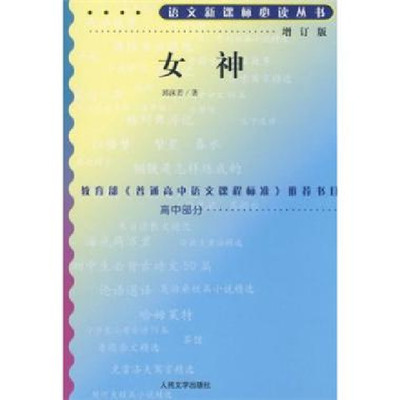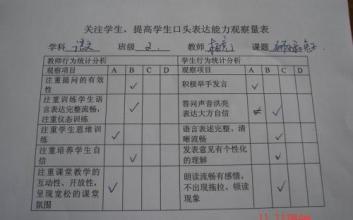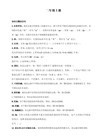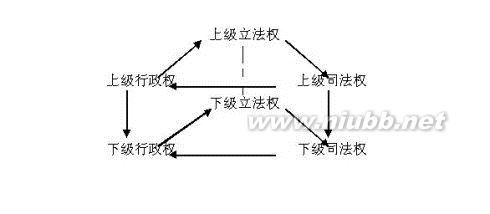20世纪中国,郭沫若是一个才情张扬的伟大作家,这是一个普遍认同的事实,虽然他卷入了太多反正纷纭、是非莫辨的个人和公共事件。郭沫若的译诗,有白话译诗,也有文言译诗,有自由诗体,也有格律诗体,其中包含一些至今犹可诵读的翻译佳作。郭沫若的外国诗翻译主要集中在1920-30年代,这些译诗是当时最深入、最广泛的、最诗情化的,也是自觉而成熟的。俞森林、傅勇林、王维民(2008:66-71)指出,“从1915年翻译海涅《〈归乡集〉第十六首》开始,至1969年翻译《英诗译稿》,郭沫若从事翻译的时间跨度长达半个多世纪。他一生之中将众多国外文学作品和理论及科学著作翻译介绍进来,影响了一代又一代中国读者。据笔者统计,郭沫若正式发表译著达289种之多,其中诗歌238 首、小说27 部(篇)、戏剧11 部、理论著作12 部、科学著作1 部,涉及9个国家,98位作者的作品。”其中,译诗的情况是:古代伊朗(《鲁拜集》101 首)、德国(42 首,主要在《德国诗选》中)、英国(40首,主要在《雪莱诗选》、《英诗译稿》中)、俄国(《新俄诗选》31 首)、美国(13 首)、爱尔兰(8 首)、印度(2 首)、法国(1首),还有歌德的诗体悲剧《浮士德》和长篇叙事诗《赫曼与窦绿苔》。此外,应该还有遗失的、遗漏的译诗,《〈沫若译诗集〉小序》(1928:2)写道:“有相当经过严格的选译而没有被保存的,例如惠特曼的《草叶集》抄译,泰戈尔诗选译便是。那些完全在原稿的形式中便遗失了。另外有一种余炳文兄译的《迷娘》(从歌德的《威廉迈斯德》摘录出来的一个故事),那里面有好几首诗事实上是我全部改译了的。那本小书将来假如蒐集得到,那些译诗我却希望能够增补在这儿。”据传记材料,未单独出版的还有《海涅诗选》,海涅的译诗可能就是《德国诗选》初版、再版中的五首诗(《幻影》、《打鱼的姑娘》、《悄静的海滨》、《归乡集》第十六首、SERAPHINE第十六首),这些译诗还收入《沫若译诗集》,有修订。 郭沫若一直坚信以诗译诗,把译诗看作是一种艺术的创造,1923年《讨论注译运动及其他》(1979:ⅩⅥ,144)提出了理想翻译的标准:“我们相信理想的翻译对于原文的字句,对于原文的意义,自然不许走转,而对于原文的气韵尤其不许走转。原文中的字句应该应有尽有,然不必逐字逐句的呆译,或先或后,或综或析,在不损及意义的范围以内,为气韵起见可以自由移易。”新文学运动初期,郭沫若创作了数量不菲的文言格律诗,同时也有一些文言及传统诗体的译诗,其间有自觉的、交互促进的、内在联系,正如外国诗的白话翻译是白话新诗创作的另一面。一般的,郭沫若的外国诗翻译是刻意地追求以诗译诗,无论其文言译诗、白话译诗、文言白话杂糅的译诗,大多译诗都是叶韵的。一 郭沫若的文言译诗。外国诗的文言翻译是现代中国重要的翻译实践,这些译诗尝试留下了很多启发性的经验。文言及传统格律诗体具有较好的适应性和不可置疑的转换能力,以诗译诗和诗行的对等迻译成为基本的诗歌翻译原则。《三叶集》(1920)中已经包含了郭沫若早期的一些文言译诗,如海涅《海滨悄静》第一诗节是四言、六言杂糅的译诗,海涅《归乡集》第十六首的前三个诗节是极自由的文言诗体翻译。
XIV | ||
Die Heimkehr, Buch der Lieder | ||
Heinrich Heine | Trans. Michael P. Rosewall | 郭沫若译 |
Das Meer erglänzte weit hinaus | The sea sparkled out in thedistance | 洋之水 |
Im letzten Abendscheine; | By the light of evening's lastglow; | 缥渺映斜阳; |
Wir saßen am einsamenFischerhaus, | We sat near the solitary fisherman'shouse, | 阿侬双坐打渔房, |
Wir saßen stumm und alleine. | We sat mute and alone. | 情默默,意凄凉。 |
Der Nebel stieg, das Wasserschwoll, | The fog gathered, the waterswelled, | 暮霭升,海潮涨, |
Die Möwe flog hin undwieder; | A seagull flew back and forth; | 白鸥飞渡来而往; |
Aus deinen Augenliebevoll | From your eyes full of love | 自卿双爱眼 |
Fielen die Tränen nieder. | Tears fell down. | 玉泪滴千行。 |
Ich sah sie fallen auf deineHand | I saw them fall on your hand | 千行玉泪滴卿掌, |
Und bin aufs Kniegesunken; | And sank to one knee; | 而我跪在膝之上; |
Ich hab von deinerweißen Hand | From out of your white hand | 自卿白玉掌 |
Die Tränenfortgetrunken. | I drank the tears. | 饮泪入肝肠。 |
Seit jener Stunde verzehrt sich meinLeib, | Since that hour my body consumesitself, | 自从那时消瘦起, |
Die Seele stirbt vorSehnen; | My soul is dying of longing; | 灵魂已为钟情死;-- |
Mich hat dasunglücksel'ge Weib | This wretched woman | 不幸的夫人呀! |
Vergiftet mit ihrenTränen. | Has poisoned me with her tears. | 将泪来毒死我矣。 |
Mutability(1821) | 转徙(其二) |
Percy Bysshe Shelley | 郭沫若译 |
The flower that smiles to-day | 好花今日开, |
To-morrow dies; | 明日即凋谢。 |
All that we wish to stay | 人欲所系念, |
Tempts and then flies. | 转瞬即飞逝。 |
What is this world's delight? | 试问人世间,欢乐究何谓? |
Lightning that mocks the night, | 电光嘲暗夜, |
Brief even as bright. | 亦无终夕媚。 |
Virtue, how frail it is! | 立德终易朽, |
Friendship how rare! | 良友亦难遘; |
Love, how it sells poor bliss | 爱恋如昙花, |
For proud despair! | 苦多乐良瘦! |
But we, though soon they fall, | 纵使不易持,吾侪乐所有。 |
Survive their joy, and all | 为乐足玩味, |
Which ours we call. | 相期其永久。 |
Whilst skies are blue andbright, | 天宇犹清明, |
Whilst flowers are gay, | 好花犹娇丽, |
Whilst eyes that change erenight | 良夜犹未央,两眼犹未启, |
Make glad the day; | 幽期犹暗移, |
Whilst yet the calm hours creep, | 好自贪欢睡-- |
Dream thou--and from thy sleep | 入梦无几时, |
Then wake to weep. | 睡醒而流泪。 |
The Rubáiyát | 鲁拜集 |
Omar Khayyam | |
Tran. By Edward FitzGerald | 郭沫若译 |
LI | 51 |
Whose secret Presence, through Creation'sveins | 真君冥冥兮周流八垠, |
Running Quicksilver-like eludes yourpains; | 速如流汞兮消汝苦辛; |
Taking all shapes from Mah to Mahi;and | 自月至鱼兮万汇赋形; |
They change and perish all--but Heremains; | 万汇毁变兮真君永存; |
LII | 52 |
A moment guess'd--then back behind theFold | 一瞬显现兮瞬印深藏, |
Immerst of Darkness round the Dramaroll'd | 舞台周遭兮黑暗无光, |
Which, for the Pastime ofEternity, | 彼自登场兮彼自观赏, |
He doth Himself contrive, enact,behold. | 自作消遣兮为乐无疆。 |
Immensee | Immensee | 茵梦湖 |
Theodor Storm | Tran. By C. W. Bell | 郭沫若译(1921) |
Meine utter hat’s gewollt, | By my mother's hard decree | 是我妈妈所主张, |
Den andern ich nehmen sollt; | Another's wife I needs must be; | 要我另选别家郎; |
Was ich zuvor besessen, | Him on whom my heart was set, | 从前所有心中事, |
Mein Herz sollt es vergessen; | Him, alas! I must forget; | 要我定要把他忘; |
Das hat es nicht gewollt. | My heart protesting, but notfree. | 我自暗心伤。 |
Meine Mutter klag ich an, | Bitterly did I complain | 怨我妈妈误了我, |
Sie hat nicht wohlgetan; | That my mother brought me pain. | 一着铸成天大错; |
Was sonst in Ehren stünde, | What mine honour might havebeen, | 从前本是清白身, |
Nun ist es worden Sünde. | That is turned to deadly sin. | 如今已经成罪过, |
Was fang ich an? | Can I ever hope again? | 叫我如何可! |
Für all mein' Stolz und Freud | For my pride what can I show, | 纵有矜荣和欢快, |
Gewonnen hab ich Leid. | And my joy, save grief and woe? | 徒教换得幽怨来。 |
Ach, wär das nicht geschehen, | Oh! could I undo what's done, | 若无这段错因缘, |
Ach, könnt ich betteln gehen | O'er the moor scorched by thesun | 纵使乞食走荒隈, |
Über die braune Heid! | Beggarwise I'd gladly go. | 我也心甘受。 |
Prolog im Himmel | Prologue in Heaven | 天上序幕 |
Faust | Faust | 浮士德 |
Johann Wolfgang von Goethe | tran. by Anna Swanwick(1909) | 郭沫若译(1954) |
Raphael. | Raphael. | 拉斐尔: |
Die Sonne tönt nach alter Weise | THE Sun, in ancient guise,competing | 太阳循轨道, |
In Brudersphären Wettgesang, | With brother spheres in rivalsong, | 步武如雷霆, |
Und ihre vorgeschriebne Reise | With thunder-march, his orbcompleting, | 高唱决胜歌, |
Vollendet sie mit Donnergang. | Moves his predestin'd coursealong; | 古调和群星。 |
Ihr Anblick gibt den EngelnStärke, | His aspect to the powerssupernal | 阳光励天使, |
Wenn keiner sie ergründen mag; | Gives strength, though fathom him nonemay; | 神秘莫能明; |
Die unbegreiflich hohen Werke | Transcending thought, the workseternal | 宏哉大宇宙, |
Sind herrlich wie am ersten Tag. | Are fair as on the primal day. | 开辟以至今。 |
Gabriel. | Gabriel. | 甘伯列: |
Und schnell und unbegreiflichschnelle | With speed, thought baffling,unabating, | 神迅复神迅, |
Dreht sich umher der ErdePracht; | Earth's splendour whirls in circlingflight; | 光华随地转; |
Es wechselt Paradieseshelle | Its Eden-brightness alternating | 深宵鬱慘黷, |
Mit tiefer, schauervoller Nacht; | With solemn, awe-inspiringnight; | 瞬与天光換; |
Es schäumt das Meer in breitenFlüssen | Ocean's broad waves in wildcommotion, | 巨海泛洪濤, |
Am tiefen Grund der Felsen auf, | Against the rocks' deep base arehurled; | 流沫深崖底, |
Und Fels und Meer wirdfortgerissen | And with the spheres, both rock andocean | 巨海与深崖, |
Im ewig schnellem Sphärenlauf. | Eternally are swiftly whirled. | 恆隨天地徙。 |
Michael. | Michael. | 弥海尔: |
Und Stürme brausen um die Wette, | And tempests roar in emulation | 飓风洋而陆, |
Vom Meer aufs Land, vom Land aufsMeer, | From sea to land, from land tosea, | 时复陆而洋, |
und bilden wütend eine Kette | And raging form, withoutcessation, | 咆哮震寰区, |
Der tiefsten Wirkung ringsumher. | A chain of wondrous agency, | 神钧之榜样。 |
Da flammt ein blitzendesVerheeren | Full in the thunder's pathcareering, | 当破击必毁, |
Dem Pfade vor des Donnerschlags; | Flaring the swift destructionsplay; | 雷电闪光芒; |
Doch deine Boten, Herr, verehren | But, Lord, Thy servants arerevering | 唯我仙之人, |
Das sanfte Wandeln deines Tags. | The mild procession of thy day. | 悠悠在天乡。 |
Zu drei. | The Three. | 三人: |
Der Anblick gibt den EngelnStärke, | Thine aspect to the powerssupernal | 天光励天使, |
Da keiner dich ergründen mag, | Gives strength, though fathom thee nonemay; | 深秘莫能明; |
Und alle deine hohen Werke | And all thy works, sublime,eternal, | 宏哉造化工, |
Sind herrlich wie am ersten Tag. | Are fair as on the primal day. | 开辟以至今。 |
IVIf I were a dead leaf thou mightest bear;假使我是一片败叶你能飘飏,If I were a swift cloud to fly with thee;假使我是一片流云随你飞舞,A wave to pant beneath thy power, and share假使我是在你威力之下喘息的波涛,The impulse of thy strength, only less free分受你力波的灵动,Than thou, O uncontrollable! if even几与你一样的不羁;I were as in my boyhood, and could be假使我如还在童年,The comrade of thy wanderings over heaven,能为你飘泊太空的风云的伴侣,As then, when to outstrip thy skiey speed那时我的幻想即使超过你的神速,Scarce seem'd a vision—I would ne'er have striven也觉不算稀奇;As thus with thee in prayer in my sore need. 我决不会如此地哀哀求你。O! lift me as a wave, a leaf, a cloud!啊!你吹舞我如波如叶如云吧!I fall upon the thorns of life! I bleed!我生是创巨痛深,我是血流遍体!A heavy weight of hours has chain'd and bow'd时 间的威权严锁了我,重压了我,One too like thee—tameless, and swift, and proud.我个太浮,太傲,太和你一样不羁的!
V
Make me thy lyre, even as the forest is:请把我作为你的瑶琴如像树林般样:What if my leaves are falling like its own?我纵使如败叶飘飞也是无妨!The tumult of thy mighty harmonies你雄浑的谐调的交流Will take from both a deep autumnal tone,会从两者得一深湛的秋声,虽凄切而甘芳。Sweet though in sadness. Be thou, Spirit fierce,严烈的精灵哟,请你化成我的精灵!My spirit! Be thou me, impetuous one!你请化成我,你个猛烈者哟!Drive my dead thoughts over the universe,你请把我沉闷的思想如像败叶一般,Like wither'd leaves, to quicken a new birth;吹越乎宇宙之外促起一番新生!And, by the incantation of this verse,你请用我这有韵的咒文,Scatter, as from an unextinguish'd hearth把我的言辞散布人间,Ashes and sparks, my words among mankind!如像从未灭的炉头吹起热灰火烬!Be through my lips to unawaken'd earth你请从我的唇间吹出醒世的警号!The trumpet of a prophecy! O Wind,严冬如来时,哦,西风哟,If Winter comes, can Spring be far behind?阳春宁尚迢遥? 在德语作品的翻译上,歌德《浮士德》(第一部)“城门前”就是一段成熟的白话译诗,比较《三叶集》中的最初译诗(1979:ⅩⅤ,6-7):“两个心儿,唉!在我胸中居住在,/人心相同道心分开:/人心耽溺在欢乐之中,/固执着这尘浊的世界;/道心猛烈地超脱凡尘,/想飞到个更高的灵之地带。/唉!太空中若果有精灵,/在这天地之间主宰,/请从那金色的霞彩中下临,/把我引到个新鲜的,绚烂的生命里去来!”这一修订的白话诗体是严整的、流畅的、成熟的,褪去了早期的青涩和不齐。《德国诗选》中较重要的白话译诗有:歌德《少年维特之烦恼》的序诗“维特与绿蒂”和“暮色”,歌德《威廉麦斯特的学习时代》的“迷娘歌”,席勒《威廉•退尔》的“渔歌”。以下是歌德《湖上》的白话译诗,气韵流畅,措辞练达,少增衍成分,偶入文言之域,有清雅之美,Auf dem See湖上

Johann Wolfgang von Goethe郭沫若译
Und frische Nahrung, neues Blut鲜的营养,新的血液,Saug ich aus freier Welt;我吸取从自由的天地,Wie ist Natur so hold und gut,自然拥我在怀中,Die mich am Busen hält!是何等地慈和、婉丽!Die Welle wieget unsern Kahn波摇摇而弄舟,Im Rudertakt hinauf,水声与棹声相酬,Und Berge, wolkig himmelan,湖岸山入云表,Begegnen unserm Lauf.欢迎我辈来临。Aug, mein Aug, was sinkst du nieder?眸子哟,我的眸子,为甚沉沉俯视?Goldne Träume, kommt ihr wieder?金色的幽梦们,可是你们又至?Weg, du Traum! so gold du bist;离去吧,幽梦!不怕你贵如黄金;Hier auch Lieb und Leben ist.在这儿也有爱和生命。Auf der Welle blinken整千的沉浮的星星Tausend schwebende Sterne,在这波上闪明;Weiche Nebel trinken柔和的云雾,Rings die türmende Ferne;饮尽了周遭的遥岑;Morgenwind umflügelt习习晨风Die beschattete Bucht,几湾碧水吹皱。Und im See bespiegelt待熟的木果Sich die reifende Frucht.映在湖中。 郭沫若的外国诗翻译往往有杂糅文言和白话的译作,威廉•布来克《老虎》至今依然是可诵的白话译诗,虽偶有歧误,气韵重构几乎无译者出于其右,译诗较好传达了布莱克原诗深沉的神秘性,且微显宗教情绪,诗句工整妥帖,并不失灵活。妥默斯•讷徐《春》却是杂糅的译诗,因此受到卞之琳的批评(例如“一年之中的尧舜”),这一译诗有鲜明的译者风格化改写,Spring, the sweet spring春
Thomas Nashe郭沫若译
Spring, the sweet spring, is the year's pleasant king,春,甘美之春,一年之中的尧舜,Then blooms each thing, then maids dance in a ring,处处都有花树,都有女儿环舞,Cold doth not sting, the pretty birds do sing:微寒但觉清和,佳禽争着唱歌,Cuckoo, jug-jug, pu-we, to-witta-woo!啁啁,啾啾,哥哥,割麦、插一禾!The palm and may make country houses gay,榆柳呀山楂,打扮着田舍人家,Lambs frisk and play, the shepherds pipe all day,羊羔嬉游,牧笛儿整日价吹奏,And we hear aye birds tune this merry lay:百鸟总在和鸣,一片悠扬声韵,Cuckoo, jug-jug, pu-we, to-witta-woo!啁啁,啾啾,哥哥,割麦、插一禾!The fields breathe sweet, the daisies kiss our feet,郊原荡漾香风,雏菊吻人脚踵,Young lovers meet, old wives a-sunning sit,情侣作对成双,老妪坐晒阳光,In every street these tunes our ears do greet:走向任何通衢,都有歌声悦耳,Cuckoo, jug-jug, pu-we, to witta-woo!啁啁,啾啾,哥哥,割麦、插一禾!
简短的结语。 郭沫若信仰以诗译诗,他的诗歌翻译总是个性化的,留下了数量不菲的诗歌译作。郭沫若的译诗大多重现了原诗的气韵和情绪:浏亮而流贯。前后期均有严整的文言译诗,也有自由的白话译诗,也有文言白话杂糅的译诗,尝试了较多汉语诗体,尤其是传统诗体:骚体、乐府、歌行体、四言诗、五言诗、七言诗等,可以说,歌行体的译诗往往流于油滑的印象,如彭斯《红玫瑰》。总体上,1915-1929年译诗率真、激越、诗体简朴,1947年益群版的《沫若译诗集》新增的译诗倾向修饬、严谨、调和,1981年《英诗译稿》中的译诗较工巧、妥帖、诗行整齐。虽然人们对郭沫若的译诗颇多争议,其译诗成就却是不容忽视的。
 爱华网
爱华网



